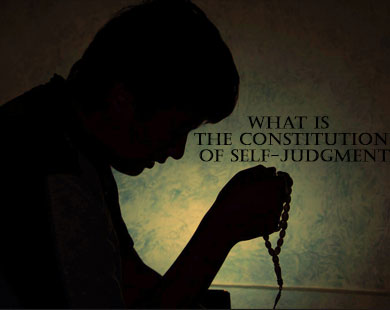Islamic Theology: Justice of God
Introduction
Among all of His Attributes of Action, the divine Attribute of Justice (al-Adl) is given special attention by theologians to the extent that Shiite Muslims have considered it as part of their fundamental beliefs. The issue of the Justice of God is related to so many other Islamic issues such as believing in God, monotheism or dualism, types of rewards or punishments in the hereafter, free will or determinism and philosophy of religious rites, etc.
Thus, believing in or denying the Justice of God will determine one’s perspective of the world.
The Argument
No doubt, there are various types of unpleasant events happening in the world. As a result of natural disasters such as earthquakes, volcanoes, floods and so forth, hundreds of people die every year. A variety of diseases, calamities, plagues, droughts etc. kill many human beings as well as animals and plants. Many deformed children are born every day who will suffer throughout their entire life. Many criminals are freely committing different types of crimes and no-one stops them. Millions of innocent people were killed during the 1st and the 2nd World Wars, as they are still being killed in different parts of the world.
The question now is, 'How can the knowledgeable and Merciful God let all these disasters happen?' Given all these and many as such catastrophes of life, how can we assert that God is Just?!
Facets of the Problem
There are at least three dimensions for the problem of the justice of God:
1- Justice in the creation such as the differences between humans.
2- Justice in legislation, such as the difference between the male and the female’s share in inheritance.
3- And justice in punishment on the Day of Judgment, such as eternity in hell.
Suggested Answers
1- Man’s limited knowledge: God is All-wise, and behind every seemingly evil there are goodly benefits, although man with his limited knowledge may not be able to discover them. Thus, he should accuse his knowledge not his Creator.
﴾And of knowledge, you (mankind) have been given only a little.﴿ [17:85]
The best example of this limited knowledge is described in the story of Prophet Moses (peace be upon him and his household) and the learned man (Kedhr). [The Quran 18:65-82]
2- Difference not discrimination: Among the creation of God there are differences but there is no discrimination. Discrimination is to differentiate between two people who are in the same situation, and the same condition. For instance, to give them the same job under the same condition, but with a different payment. What we have in the universe is the difference, not the discrimination. In fact, the world we live in is an amazing collection of different beings, species, talents, sexes, desires, etc. to fulfill different purposes.
﴾We have created all things with measure.﴿ [54:49],
﴾Our Lord is He Who gave to each thing its form and nature, then guided it alright.﴿[20:50]
3- Self- Made Problems: Many catastrophes are taking place in our lives that we are their cause. Nevertheless, in order for us to exonerate ourselves, we turn around and blame God!
4- Divine Punishment: Some of the catastrophes in our lives are, in fact, the effect of our own evil deeds."
﴾And whatever of misfortune befalls you, it is because of what your hands have earned. And He pardons much.﴿[42:30]
It is also narrated from Imam Sadiq (A.S.): "Those who die because of their sins are more than those who die because their lives ended, and those who live because of their good deeds are more than those who live because of their natural lives."1
5- Awakening Catastrophes: Some of the bitter experiences aim to awaken people. Pride and egoism is the cause for many crimes. Man ought to acknowledge that he is weak and needy or else he will corrupt enormously.
﴾And indeed We punished the people of Pharaoh with years of drought and shortness of fruits, that they might take heed.﴿ [7:130]
6- Testing: Divine trials are one of the purposes of man’s creation. In the furnace of trials people demonstrate their potential and present their skills. It is only then that the patient from the impatient, and the sincere from the hypocrites, and the thankful from the thankless people will be separated.
﴾If Allah had willed, He would have made you one nation, but that (He) may test you in what He has given you.﴿ [5:48]
7- Testing: Divine trials are one of the purposes of man’s creation. In the furnace of trials people demonstrate their potential and present their skills. It is only then that the patient from the impatient, and the sincere from the hypocrites, and the thankful from the thankless people will be separated.
﴾If Allah had willed, He would have made you one nation, but that (He) may test you in what He has given you.﴿ [5:48]
8- Acknowledging the Blessings: In general, man forgets the blessings of God when in a state of constant happiness. The blessing of health wouldn’t be so much appreciated if there were no sickness at all. The blessing of living on such a peaceful planet, despite its high speed rotation, wouldn’t be acknowledged if there were no earth tremors at all.
9- Purification of sins: Catastrophes of life are also the means of purification for the sinful believers. It is narrated from Imam Sadiq (A.S.):
"Sickness for a believer is a (means of) purification and mercy and punishment and cursing for a disbeliever. Surely, an illness stays with a believer until there is no more sin on him."2
10- God Compensates: Difficulties and catastrophes are part of the nature of this world. However, the Almighty God will surely compensate those who were patient and grateful with His abundant blessings in Paradise. Imam Sadiq (A.S.) about those who were afflicted with calamities yet were thankful and patient said: "God will compensate them so much that if they were given the opportunity to come back to this world to experience those difficulties again they would prefer to come to gain more rewards."3
11- What is Good and what is Evil?
Something may be good for a person, and evil for another. Something can be good for humans and evil for animals and so forth. The sting of insects and the venom of poisonous animals and plants are their defense mechanism and tools of catching food. Besides, many of their poisons also have some medical benefits for humans, such as antibiotics. Nevertheless, their poison may kill some other species. We need to remember that it’s their world too. But their lives disrupted, their space invaded, their safety threatened and their world is usurped by man and yet we consider them evil! Thus, evils are relatively not real.
Volcanoes, earthquakes, floods and such natural disasters, are given the name 'disasters' whilst ignoring their beneficial aspects. From a geological point of view, all are beneficial and vital in providing life on the surface of the planet Earth.
This means that without them occurring, no living creatures would be able to live on the surface of the Earth.
Moreover, these so-called natural disasters have yielded economic resources for humans too. Zinc, copper, lead and many other metals are found as a result of volcanic activities, to the extent that volcanic areas have nowadays become important sources of geothermal energy, as in New Zealand. Thus, we ought to look at the bigger picture.
Questioning the Justice of God, in fact, rises up as a result of the pride of man, that he wants to put himself in the center of the universe ignoring other beings, or as a result of the non-intellectual approach to events, assuming that perfection of life means gaining without facing any difficulties, which is an unrealistic way of thinking.
In the community of faithful people, existence is equal to good, as non-existence is evil. God worshippers, therefore, are the most optimistic people and hence they enjoy the blessing of life.
Justice of God and Eternal Punishment
Another question is regarding the punishment of criminals in the hereafter. Islamically, as we will learn later in this course, on the Day of Judgment, people receive the rewards or the punishment of their worldly deeds, accordingly. Although, not all the people of Hell will suffer eternally, there are some groups who will inevitably be punished forever.
The question, now, is why should a person who has committed sins in a limited time of his/her worldly life be punished eternally? A permanent punishment, therefore, for an impermanent sin is incompatible with the justice of God.
The answer is, man’s punishment in the hereafter is, in fact, the natural reaction of his/her own deeds. In other words, divine punishments as well as rewards in the hereafter are the inevitable consequences of our actions in this world, on the basis of the law of cause and effect. They are not conventional events to be agreed upon. As an example, excess consumption of alcohol may cause a stomach ulcer, because of which the patient may suffer for the rest of his life. In your common sense, is it a sound argument if the patient argues that he had only drank it over a night, why should he suffer for the rest of his life?! Becoming infected with HIV/Aids because of only an hour of unhealthy sexual relation, and suffering for the rest of one’s life?!
In fact, the concept of the hereafter and its promised punishments and rewards is the best example of the Justice of God, the Almighty.
* Author: Sheikh Mansour Leghaei.
1- Behar 5:140.
2- Thawabul-A'mal, p.429.
3- Behar 3:71.




















